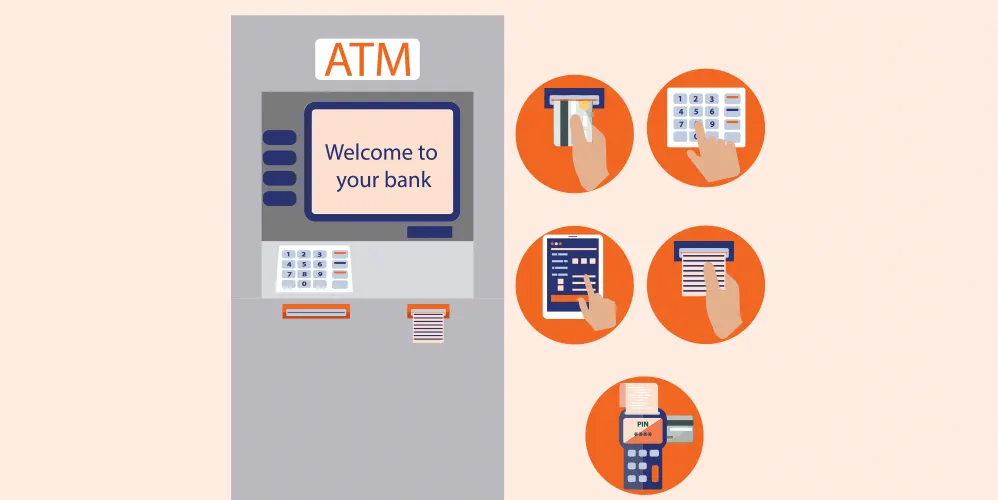
Fixed Vs Floating Home Loan Interest Rate - Which is Better
02 Jan 2023

Table of Content
A person living in a rented apartment dreams of buying a home. However, buying a home or even preparing to buy one, is a story by itself. Eclipsing all the other concerns like the locality, amenities, and connectivity is finance. Potential homeowners search for lenders who can loan them the principal sum to build a house. While banks and other financial institutes are more than willing to disburse the loan, varying interest rates are a cause for concern. Home loans come at either floating interest rates or fixed interest rates. The decision to choose one over the other is vital for a borrower as that affects the EMI repayment rate plan. Floating interest rates, as the name suggests means that the rate of interest paid by the borrower is directly related to the current financial environment. If the bank interest rate falls, then the interest rate of the EMI too will fall and if the interest rate goes up the EMI rate too will move up. The term fixed rate is somewhat perplexing. The term gives assurance of a fixed value, but do not ignore the fine print where it may state that the loan provider can raise the interest rate at any time due to certain developments. These can be called fixed-floating rate home loans where the rate of interest may increase under some conditions but not to the extent of floating loans. Despite all the smart and clever terminologies, there is a fixed rate home loan but to be sure that you do not get trapped in any nuanced clauses it is best to have the document perused by legal experts before opting for this loan. Floating loans are offered at comfortable interest rates by lenders over fixed home loans. Let us take you through fixed vs floating interest rates in greater detail.
What is Floating interest rates
The difference between fixed and floating interest rate, may still be a bit confusing for the first time borrow. So, Floating interest rates come with a benchmark rate stated by the lender. These are adjustable as they are subject to market fluctuation and the floating home loan interest rate varies accordingly. The lender defines a calendar period to reset the loan's floating interest rates. It could be the loan anniversary date or any quarterly or half-yearly or monthly resetting cycle. The period is reviewed and if any fluctuation is recorded in the market rate, the interest rate is reset. The reset directly impacts the tenure date when the interest rate registers a change. With the increase of the market rate, the loan tenure is extended and decreased if the market rate falls. The EMI is not altered as that can have an inverse effect on the cash flow and prove difficult for the borrower. However, the borrower can also raise the EMI instead of the tenure whichever is better.
Floating interest rates are favourable when you expect market interest rates to fall. If you are choosing the loan tenure as less than five years, choosing a lower rate will be better with a lower floating home loan interest rate.
However, you must be mindful that the interest rate may shoot up but given that the loan tenure is short and market fluctuations may be over time, you can expect that for the larger part of your loan tenure you will be paying a lower rate. So, if you are unsure about home loan interest rates then choosing the floating home loan interest rate may help you save on the interest cost.
With fixed home loan interest rate arriving at a much higher interest rate, banks encourage borrowers to choose a floating home loan interest rate.
Those weary of floating rates can choose the floating and fixed home loan options. This type of loan gives you time to decide which side will you take if interest rates scale up. However, you must be aware of the fine print and not swayed by temptation. For long-term loans where the floating interest rate may peak over a longer tenure, equalling or exceeding fixed interest rates, it would be prudent to switch to fixed interest rates where you can be certain of how much you are expected to pay. The lender will fix a floating to a fixed switch charge for the borrower, but if the loan amount is summing up to be huge the charges are worth paying for. Keep a close market watch for a year or two and keep track of the fixed rates across providers and switch at the most opportune time.
The RBI in a 2019 circular stated that banks offering floating loans should be marked to an external benchmark. Under which the interest rate can be reset at least once in three months. With repo rates moving up to 5.90%, banks are free to decide on the spread over the external benchmark. Banks will be guarding their margins and with higher interest rates the spread will be reflected likewise. The loan contract pre-agrees that ‘credit risk premium may change only when borrower’s credit assessment undergoes a substantial change.' Therefore, it is near impossible to predict the interest rate cycle on fixed vs floating interest rates.
What is Fixed interest rates
Fixed interest rates on housing loans refer to an unchanged rate of interest irrespective of the change in repo rates. The rate of interest is decided at the time when the loan is approved and sanctioned by the bank. This loan amount is unaffected by inflation rates. Borrowers who choose fixed home loan interest rate on long-term housing loans do so as they feel comfortable with assured and consistent monthly payments of EMIs. The loan term and current interest rate influence the fixed rate interest of the loan. Though fixed interest rates are unchanged by the economic ups and downs, as the economy grows the variable interest rates also get affected.
Now when the Reserve bank has increased the repo rate by 50 basis points, the current repo rate is 5.90%, and lenders are naturally appreciating interest rates, it is the best time to take housing loans at fixed interest rates. Experts feel that with the interest rates spiking both in India and globally over the next two years, it would be a better decision to choose loans offering fixed interest rates. However, lenders have exponentially hiked lending rates which will remain the same for the entire loan tenure. Have your document carefully scrutinized by a lawyer to understand the nuances. Before embarking on a commitment, do a complete calculation on which is going to be more advantageous in the long run, note down the difference between fixed and floating interest rate. Loan interests are most likely to rise by 1-2 per cent in the coming 13-18 months, factor this rise into your calculations.
Fixed vs floating home loan interest rate
| FIXED INTEREST RATES | FLOATING INTEREST RATES |
|---|---|
| Home loan interest rates remains fixed all through the loan tenure. | Interest rate on your home loan changes based on the benchmark rate of the lender proportionate to market fluctuations. |
| Fixed rates interest rates come at higher price than floating interest rates. | Floating rates are slightly lower than fixed rates when loan is for a shorter tenure. |
| The fixed home loan interest rate is for those who are unsure of the market standing in long term loans and prefer to repay loans at a fixed amount. They are sure that the market rates will rise increasing the interest on floating loan interest rates | Those unsure of where the interest rates will head should go for floating loan interest rates. |
| Suitable for those hoping to repay loans within 3-10 years | Suitable for younger borrowers expecting to repay loans in long term within 20-30 years |
| It must be remembered that fixed home loans come with a prepayment penalty. As lenders do not risk loss in interest rate which fixed interest rates bring. | Floating home loans come with no prepayment penalty. When the interest rate drops, borrowers can prepay a few EMIs together. |
| You can plan your financial budget and other investments | Financial budget planning gets tricky and difficult |
| Gives you a sense of security | You can generate savings |
| Risks are lower | Risks are higher |
Floating interest rates - Pros & Cons
Pros
- Floating interest rates are lower by 1-2.5 per cent than fixed interest rates.
- When it comes to fixed vs floating interest rates, the variable interest rate offered by banks or NBFCs is lower than the fixed rates offered to customers. Even if the floating interest rate grows, the interest rate can still be lower than the fixed interest rate offered by these institutions previously.
- The volatile interest rate is unlikely to outdo the interest rate for the duration of the loan. After a given time the risk of decreasing floating rates remains.
Cons
- The EMIs of specific loan amounts will change due to the floating loan interest being market dependent.
- Floating loan interests cannot be budgeted owing to their volatile nature.
- The loan does not allow a fixed payback timeline owing to the interest rate option, there is a good chance that borrowers may end up paying more than comfortable. There is a high chance that borrowers exceed their budget with less cash in hand.
Fixed interest rates - Pros & Cons
Pros
- The interest rate remains constant in fixed home loan interest rate . They are unaffected by market changes.
- Since the interest rate is fixed and is not subject to fluctuation, borrowers can plan their loan repayment on set EMIs. Your monthly budgeting falls in a pattern and you can also invest in other long-term savings.
Cons
The borrower mostly pays around 1% to 2.5 per cent more on a fixed interest rate than the fluctuating rate of a bank or NBFC.
The fixed interest rate is updated after a few years to reflect the current interest rate.
The fixed interest rate on home loans remains unchanged even if the Reserve Bank of India (RBI) announces a drop in interest rates because of a government policy. The prior rate of the loans remains unaffected regardless of any change in the interest rate. And the borrower will need to make higher payments continuously.
Expert Advice
Banks have a better insight into interest rates. You must trust a dependable bank and have a one-to-one discussion with your lending bank on the difference between fixed and floating interest rate. And which interest rate will best suit you. As we have learnt that fixed loans come at a higher interest rate while floating interest rates on house loans are lesser. The bank with its expert understanding will guide you if they see a rise in rates. Though it helps banks to earn more on fixed interest rates, they also earn more when the rate of interest on floating interest rates rises. Therefore, if they anticipate a fall in floating interest rates, it would be beneficial for the bank to get people to invest in loans with fixed interest rates. Thus if you can lock into a low fixed interest rate house loan, that's a winning situation, else go for a floating loan, as the future rates can't be anyone's guess.
FAQ's
What is the difference between fixed vs floating interest rates?
- fixed home loan interest rate on home loans maintains a constant interest rate that does not change with market conditions.
- Floating interest rateson home loans are determined by market fluctuation. The interest rate may rise and fall with the market volatility.
Is a Fixed interest Rate or Floating interest Rate Better?
When it comes to the difference between fixed and floating interest rate, one should know, fixed interest rates work well for people who have stable monetary support and can fund the loan in a short tenure. Floating interest rates work better for those who are younger and are prepared to take market risks over a long period.
Why are floating interest rates for home loans more in demand?
Customers experience greater flexibility on floating interest rates for loans.
When do customers prefer fixed home loan interest rate?
When customers are unsure about the interest rates on floating home loans in the future and prefer playing it safe with fixed home loan interest rates on home, they choose fixed home loan interest rates.
Can you convert fixed home loan interest rate to floating home loan interest rate or vice versa?
Yes, during the tenure of your home loan you can convert fixed interest rate home loans to floating interest rate house loans and vice versa, by paying fixed and floating charges to the bank.
Do floating home loans allow prepayment and are there prepayment penalties?
Yes, floating home loans allow prepayment and come with no prepayment penalties.
What does the choice of the fixed and floating loan depend on?
The selection of either loan is completely dependent on individual choice or understanding of the movement of interest rates.
Why should you choose floating interest rates?
If interest rates have a chance of dropping in the future, choosing floating interest rates over fixed home loan interest rate is better.
Popular Articles
Tag Clouds
-
Disclaimer
The contents of this article/infographic/picture/video are meant solely for information purposes and do not necessarily reflect the views of Bank of Baroda. The contents are generic in nature and for informational purposes only. It is not a substitute for specific advice in your own circumstances. Bank of Baroda and/ or its Affiliates and its subsidiaries make no representation as to the accuracy; completeness or reliability of any information contained herein or otherwise provided and hereby disclaim any liability with regard to the same. The information is subject to updation, completion, revision, verification and amendment and the same may change materially. The information is not intended for distribution or use by any person in any jurisdiction where such distribution or use would be contrary to law or regulation or would subject Bank of Baroda or its affiliates to any licensing or registration requirements. Bank of Baroda shall not be responsible for any direct/indirect loss or liability incurred by the reader for taking any financial decisions based on the contents and information mentioned. Please consult your financial advisor before making any financial decision.










